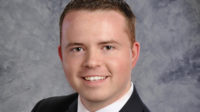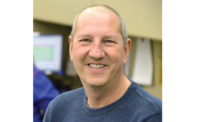Hagerstown, Md.-based Dynamark Monitoring monitors about 100,000 business and residential accounts, including its own accounts and some that it monitors on a wholesale basis for other installing companies. The company has the distinction of having created a central station from the ground up to support its operations. Senior Vice President of Central Station Operations Keith Godsey has been involved from the beginning, drawing on several decades of previous experience in the security business.
SDM Monitoring Today talked to him about the critical role the central station plays for Dynamark and how the company helps ensure excellent service.
SDM: I understand that you helped create Dynamark’s central station from scratch. Tell me about that process.
Godsey: Any time you buy a central station, you’re inheriting a lot of legacy [issues] that you have to deal with or change. When we decided to open the Dynamark central station, the idea was to create from scratch and from a blank piece of paper. And you never get to do that. We did the best of the best — redundancy and tertiary backup. We have backups to our backup.
We got UL to give us their best rating and we had trained, uniformed and polished operators and they sat there waiting to swing our first account in. Five years later, we have 100,000 or so accounts.
SDM: Dynamark monitors its own accounts as well as those of other dealers. What are some of the things that you do for your dealers?
Godsey: What we heard from our dealers was that they didn’t like how some wholesale central stations were so slow to get things done. If they needed something they had to submit a form. Our deal is we turn around on a dime. And this has helped our dealers be prosperous. We have never not returned a phone call. It doesn’t matter how good sales, service or installation are; if we drop the ball on a signal, everything you’ve done is for nothing.
SDM: Training is really important for central station operators. Tell me about your training procedures.
Godsey: People who have previously worked in monitoring are few and far between. Most people apply because they need a job. We spend the first week educating them on the alarm industry so people understand that we’re not 911 but we are life safety. They get one month of training before they handle high-priority alarm signals.
During the first 90 days, they take a TMA [The Monitoring Association] Operator Level 1 class. After 90 days, they should have been trained by us, by the software vendor, and by TMA.
We do a lot of monitoring — for response time, for how many calls you take. We constantly monitor calls. We might say “You did fine, but you could have been more polite at the end.”
During the course of a year, depending on the ability of the operator, we like them to take the Operator Level 2 class.
SDM: You track a lot of different metrics. What are some of the most important?
Godsey: The most important ones are how quickly we respond to high-priority alarms. You have a zillion signals coming in but the most important are fire, holdups, and burglary. We track the response time daily.
If a certain operator is dropping a bit, we counsel them and work with them. The minute an alarm goes off, the customer gets a notice on their phone. We don’t want to call five minutes later when they already know about it.
SDM: Why is monitoring operators’ phone calls so important to you?
Godsey: Everybody has a bad day, but we want to make sure that when you deal with a customer, it’s the most courteous call you could get. If a customer is calling because she had an alarm at 2 a.m., she is upset. We can calm her down or we can send her into outer space.
We always ask customers if there is anything else we can help them with. Five out of 10 say they need something else — a service call or a bill question. We empower all our operators to be able to handle most of what a customer could ever need.
SDM: What do you do to motivate and retain qualified employees?
Godsey: One of our things is we try to catch people doing things right. When we do, we make a big deal out of it. If we caught burglars, the CEO will stop by and congratulate the operator and buy lunch or dinner for the whole shift from that operator. If it’s a dealer account, we notify the dealer that our quick five-second response helped apprehend three guys.
We also do incentive bonuses. After 90 days, operators get an increase and after completing Operator Level 1 and Level 2 training, they get an increase.
SDM: I heard that you had an innovative way of making sure operators were able to get to work during a big snowstorm a while back. Tell me about that.
Godsey: We called it “Snowmaggedon.” We had 48 inches of snow in 24 hours.
We spent a thousand dollars on soup and food because we knew what was going to happen. One guy had a snowmobile and he went around and picked up operators. Our dealer in California doesn’t care that it’s snowing in Maryland.
SDM: I understand that you call accounts even when they cancel an alarm. What convinced you this was a good policy?
Godsey: The thought process is if you set off an alarm and put a code in, a lot of people don’t know there’s a panic code, so we really don’t know if someone is behind you with a gun. We have had a couple of cases where there was a guy with a gun to a guy’s head in a store. When we called, he gave the wrong passcode so we dispatched the police.
SDM: What else do you do to create and maintain a positive relationship with end users?
Godsey: We offer mobile apps so people can see what’s going on and we send out regular information updates. We have a newsletter with security tips. And our service department totally interacts with customers. If there is a software update or a new widget that may help you, we let you know it’s available. Communication is everything.
SDM: What are you doing to preserve or improve your relationship with responding authorities?
Godsey: We constantly communicate with them. If there is any issue, we make sure we communicate with them. If there is a fire or burglary, we contact them after the fact and thank them for a job well done. We have been given awards by the local police for interaction with the police department.
SDM: Is there anything else you would like to mention?
Godsey: Central stations are evolving into security operations centers. They take care of many different needs. You might have a 5,000-chicken farm. When the temperature goes up, if we don’t do our job, chickens are going to die. Or at a day care center, we got a holdup alarm. A guy was trying to snatch a kid.
Every need is different, but our performance is expected to be top level and that’s what we strive for.
Check out SDM’s coverage of the 2017 Central Station Excellence Awards



